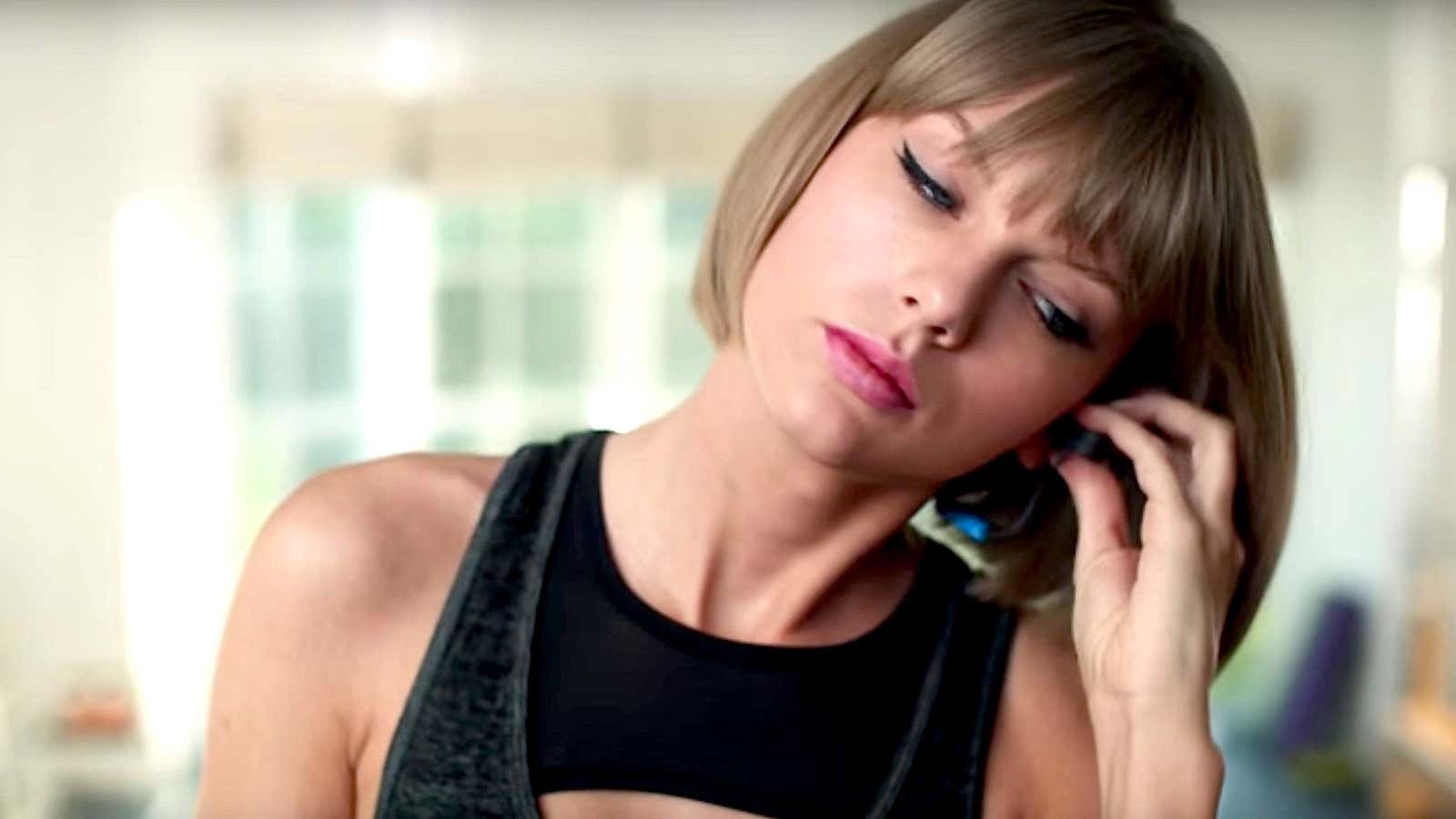Apple Music has a new ad. It features Taylor Swift falling off a treadmill.
“Man, I hate cardio,” the singer complains, before stepping into a light jog, rapping some Drake lyrics, and then making an over-the-top sprawl for the floor. The minute-long endeavor—aside from being ever so slightly painful to watch—barely highlights any features of the streaming service itself. It’s a clear attempt by Apple Music to say just one thing: Look, Taylor Swift likes us.
Swift publicly chided Apple Music last summer for not paying artists during its three-month trial period, but reversed course and graced the service with her new album 1989 after Apple changed its policies. She’s still, famously, a Spotify holdout—a fact upon which Apple Music is capitalizing, with taglines like “All the music you want” on its new ad campaign.
Celebrity exclusivity is the newest way music streaming companies are duking it out for customers. Kanye West, for instance, dropped his new album The Life of Pablo on Jay Z’s subscription service Tidal alone. But that didn’t stick: Today (April 1), the record was released on Spotify and Apple Music.
In music, there’s really no such thing as exclusivity anymore. Piracy runs rampant; tracks get ripped and uploaded elsewhere. While services like Apple Music and Tidal may flaunt the star power of celebrities who support them, they also know it’s a show—no listener is going to choose one service over another because it has a deal with a single artist (especially if his or her tracks can simply be torrented).
Consumers aren’t dumb; what really matters in the competition are the quality and price of the product. As streaming companies continue to gobble up the global music industry, services are going to have to rely on the size of their catalog, as well as their platforms’ originality and ease of use, rather than the superficial glitz and glamour of one or two big names.
